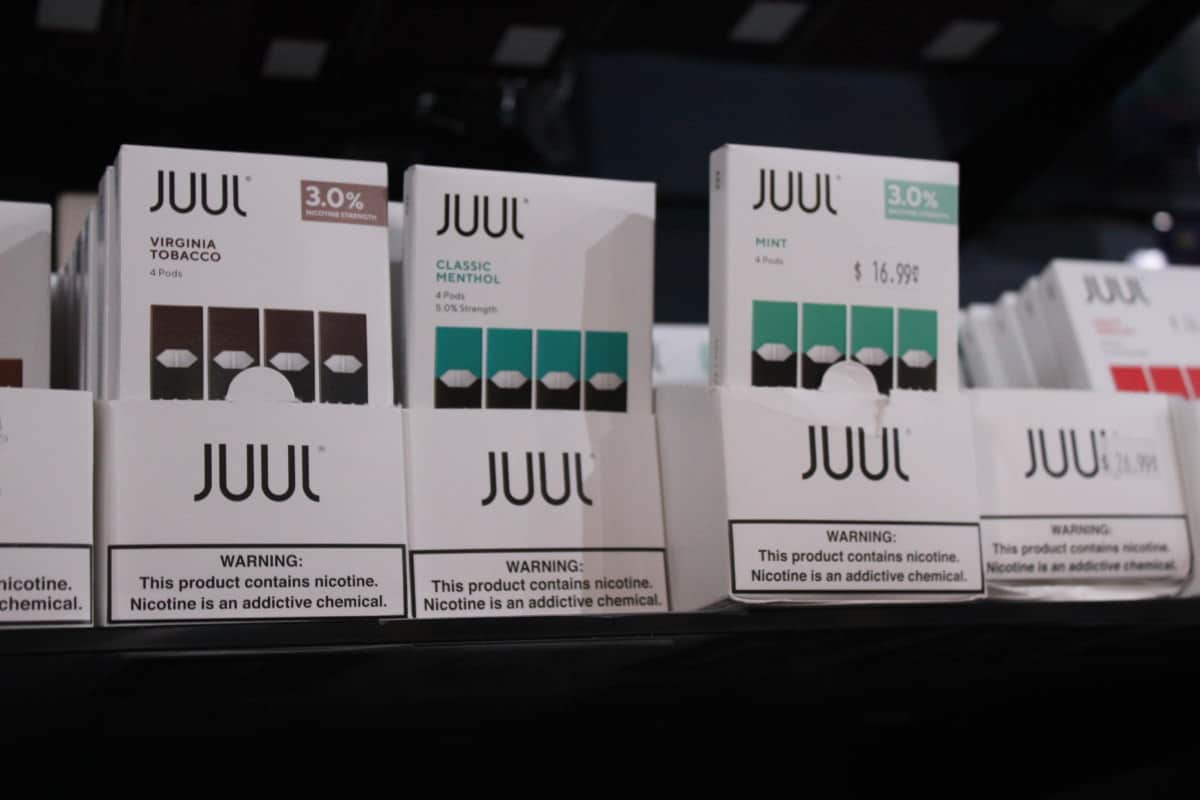On Wednesday afternoon, North Carolina Attorney General Josh Stein announced in a press conference that he filed a lawsuit against Juul, the leading e-cigarette manufacturer with some of the highest nicotine levels in the market, “for designing, marketing, and selling its e-cigarettes to attract young people and for misrepresenting the potency and danger of nicotine in its products.” Stein held that Juul’s actions are in violation of North Carolina’s Unfair and Deceptive Trade Practices Act.
Stein is requesting that the court require the following of Juul Labs:
“…to cease selling e-cigarettes to minors in North Carolina, limit the flavors sold in the state, stop advertising and marketing practices that are intended to or likely to appeal to minors, and delete all customer data for customers whom JUUL cannot confirm are at least 18. Attorney General Stein is also requesting civil penalties, disgorgement of JUUL’s profits from its unfair and deceptive practices to the state, and other fees and costs.”
“Juul not only targeted young people, it deceived them and other customers about the dangers of their products,” Stein said of the company’s product, which came on the market with 5% nicotine per pod — or roughly the same amount of nicotine as one pack of cigarettes. “Nicotine is poisonous to the brain, particularly teenage brains.”
“As a result of Juul’s deceptive and unfair practices, thousands of North Carolina kids are at risk of addiction to nicotine,” Stein added. “Juul created and spread a disease, the disease of addiction among North Carolina teenagers. Juul must be stopped from spreading this disease any further and must pay for its violations of the law.”
Luka Kinard, a high school student from High Point, spoke at the press conference in support of Stein’s statements. Since Kinard sought rehab services for 39 days last year after becoming addicted to Juul, he has been vocal about his experience at events across the state.
“For me, it was just a way to fit in,” said Kinard on why he started Juuling (a popular term used for vaping a Juul). “As soon as I started, I quickly realized how many friends I had, and it started to be my identity.”
While it gained him friends, Kinard explained he lost hold of several other aspects of his life in the same instant.
“Before vaping, I was a straight A student. I played two sports, and I was in Boy Scouts,” he said. “First semester, my grades started going down a little bit … then I started getting Fs and Ds. I quit sports as soon I hit freshman year. I stopped going to Boy Scouts. I stopped going to church events, and my interactions with family and friends were very explosive.”
The change in Kinard was especially hard on his mother, Kelly Kinard, who also spoke at the press conference.
“Like millions of other parents, we did not see this coming,” she said. Read Kelly Kinard’s interview with EducationNC here.
“Overnight, the child we raised had disappeared. We were living with a kid who was completely dependent on Juul to self-medicate his Juul-induced anxiety,” she added. “It has already been established that nicotine use in teens leads to problems with attention, cognitive ability, and impulsivity. Well, with Juul, you can magnify that a hundred times.”


Susan Kansagra of the NC Department of Health and Human Services closed the press conference with final statements on the broader health aspects of youth e-cigarette use.
“In a span of six years, we’ve seen a 900% increase in high school students reporting that they are using e-cigarettes,” Kansagra said.
“As Attorney General Stein mentioned, over decades we had made progress in tobacco control and prevention, but Juul and e-cigarettes have single-handedly reversed those trends,” she added. “… And the health consequences that we are going to be seeing as a result are huge.”
Stein’s lawsuit comes as a follow up to the civil investigative demand he submitted to Juul Labs on Oct. 15, 2018 “for more information about Juul’s marketing practices, retailers, contact with resellers, efforts to verify age before purchase, and any youth education and awareness programs.”
The investigation followed the Food and Drug Administration’s (FDA) crackdown on the e-cigarette industry last year after learning through the 2018 National Youth Tobacco Survey that 1.5 million more students used e-cigarettes in 2018 than in 2017.
“Teenagers in every state are being induced, seduced to use this product,” Stein said.
To keep up with EducationNC’s coverage of youth e-cigarette use, click here.



